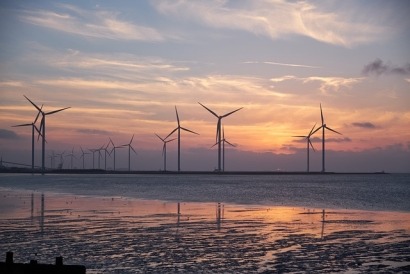
The event emphasized the significance of policy frameworks, investments, advancement in digitalization and artificial intelligence and cross-border cooperation between the United Kingdom and Norway. It also sought to address the challenges and solutions to reduce emissions intensity in the production of offshore oil and gas through electrification and offshore wind power.
With over 40 years' experience as a technology leader in power generation, management and control of offshore wind, ABB was invited to present how the electrification of offshore facilities and the integration of renewables can help accelerate the energy transition.
"It was an honour to be able to demonstrate to this summit how ABB's electrification, automation and digitalization technologies are playing a key role in electrifying offshore assets with renewables, integrating offshore wind into the energy mix to help reduce industrial CO2 emissions," said Asmund Maland, Senior Vice President Subsea and Offshore Power at ABB Energy Industries. "Such technology also enhances safety, drives productivity, ensures reliability and increases efficiency for offshore energy producers."
The environmental benefits of offshore wind extend beyond boosting the amount of clean energy in the overall mix. For example, at Hywind Tampen in the Norwegian North Sea – the world's first floating windfarm to power oil and gas platforms – offshore wind generation is being used to decarbonize hydrocarbon projects.
Supplying renewable electricity to oil and gas fields reduces the emissions per barrel of the oil produced. ABB's scope of work on the project includes an automation solution that controls the power generation from the windfarm so it can be connected to the oil and gas operations.
The UK is committed to becoming a clean energy superpower by the end of this decade. In December 2022, the government signed an agreement on offshore renewable energy cooperation with the EU and North Sea countries. The collaboration of development of offshore renewable energy and grid infrastructure will support the UK's target to increase offshore wind fivefold to 50 GW by 2030.
"For both the UK and Norway, enhancing our energy security and independence is an absolute priority – moving away from volatile international markets in fossil fuels and towards greater use of alternative energy sources," said Grant Shapps MP, Secretary of State for New Energy and Net Zero.
"Today's extension of the historic partnership between our two nations – will do just that, boosting our use of the latest green technologies to ensure security of supply, and increasing cooperation on the latest innovations and developments that will maintain our positions as world leaders in this field."

